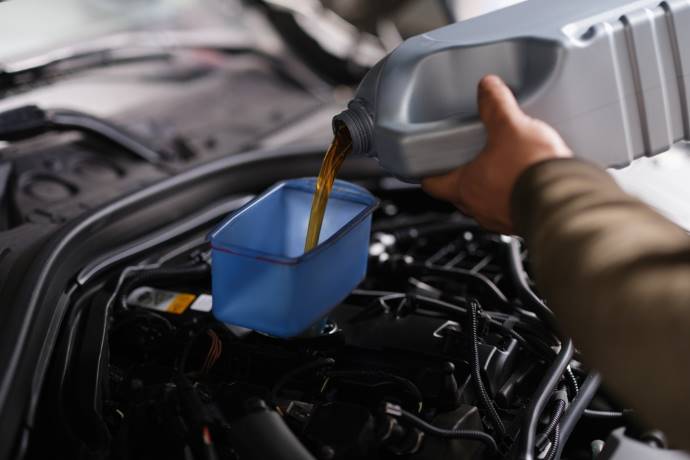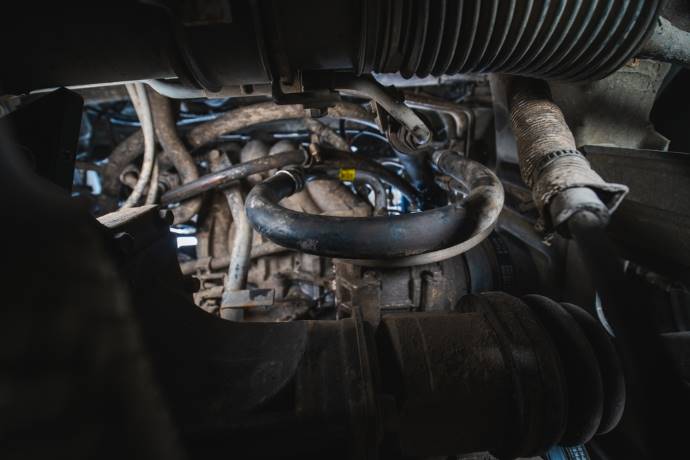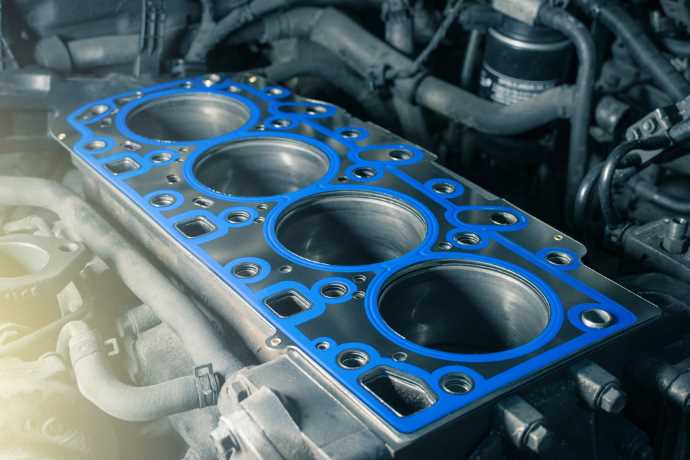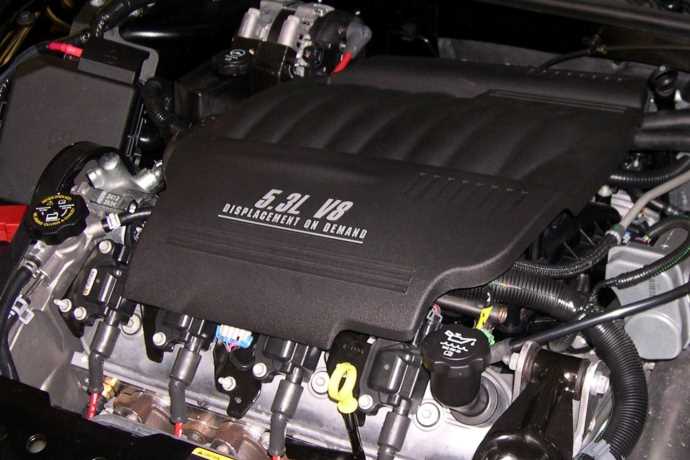General Motors produces the 5.3L, also known as the Vortec 5300, a V8 small-block Vortec engine.
With technological advancements, the automotive industry is evolving to provide consumers with efficient and reliable vehicles.
General Motors has introduced a lot of engines.
Some engines are renowned for their performance, power, and longevity; others have some common issues.
Like every mechanical part, engines also encounter particular challenges over time.
Although the Chevy 5.3 liter engine is renowned for its performance, power, and longevity.
It is also important to know the Chevy 5.3L engine’s internal structure and firing order to fix its problems.
In this article, I have discussed Chevy 5.3L V8 engines 06 common problems, symptoms, and solutions.
Additionally, I have also provided the 5.3L engine engine problems preventing tips. The 06 common problems are:
- Excessive oil consumption
- Spark plug failure
- Cracked cylinder head
- Coolant loss
- Fuel pressure regulator issues
- Intake manifold and gasket problems
These 6 problems are common in most GM 5.3 liter engines.
These problems usually arise when the owner does not perform regular maintenance.
Let’s discuss these problems elaborately.
1. Excessive Oil Consumption

Chevrolet’s 2010–2014 model-year 5.3L V8 engines have excessive oil consumption problems.
The 5.3-liter engine’s Active Fuel Management system is typically blamed for the excessive oil consumption issue.
The faulty PCV valve and defective piston rings are also responsible for this issue.
Symptoms of Excessive Oil Consumption in 5.3L Vortec
- Blue or gray smoke from the exhaust
- Frequent need for oil refills
- Oil leaks
- Reduced engine performance
- Engine misfires
Solution
Repairing the excessive oil consumption problem is a complicated procedure that requires disassembling the engine parts.
First, you must identify the underlying causes and then fix them.
Follow these guidelines to resolve excessive oil consumption issues:
- Inspect the piston rings and replace them if damaged.
- Inspect the valve stem seals; if you find any leaks, fix them or replace the valve.
- Issues with the Positive Crankcase Ventilation, or PCV valve, can cause excessive oil consumption,
- So, check the PCV valve and clean it or replace it if it malfunctions.
- Inspect the cylinder wall.
- A worn-out cylinder wall causes excessive oil consumption, which requires an engine rebuild to fix the issue.
- Use thicker and higher-quality engine oil to get the best performance from the engine.
Watch the following video for visual instructions:
2. Spark Plug Failure
Some Chevy 5.3 engines (LC9 and LH6, 2007–2011) suffer from spark plug failure.
The combined design of the 5.3 engine’s PCV valve, AFM, and valve cover has some flaws.
Therefore, it causes excessive carbon buildup in the piston ring grooves.
As a result, excessive carbon buildup increases fuel consumption and causes spark plugs to fail.
Spark Plug Failure Symptoms of 5.3 Engine
- Rough idle
- Acceleration issues
- Increased fuel consumption
- Starting issues
- Engine surging
- Engine misfires
Solution
A malfunctioning spark plug causes several engine problems, such as engine misfires, starting problems, rough idle, etc.
Therefore, carefully inspect the spark plugs and, if one or more are faulty, replace all the spark plugs at once.
Replacing all spark plugs with new ones provides a long-term solution.
Depending on the model year, the 5.3L engine’s spark plug replacement costs approximately $150 to $500.
With this video to learn how to replace the spark plug of your 5.3 engine:
3. Cracked Cylinder Head
Cracked cylinder heads are expensive to repair and pose a severe engine problem.
But the good news is that this problem is not very common with the 5.3-liter Vortec engine.
There are some 5.3-liter GM engines with cylinder head cracking issues.
Castech was a third-party cylinder head manufacturer for Chevy Generation III and Generation IV engines.
This is the primary reason for common cylinder head defects.
However, an engine’s cylinder head is essential, so you should not neglect the issue.
Symptoms of a Craked Head Cylinder of a 5.3L Engine
- Engine overheating
- Engine misfires
- Coolant loss
Solution
First, ensure the cylinder head is indeed cracked.
You can verify it by visual inspection or a cylinder leak-down test to check for compression loss.
The best way is to take your vehicle to a professional mechanic for further diagnosis and treatment.
4. Coolant Leaks

Coolant leak is the most common issue with the Chevy 5.3L engine from the 1999 to 2007 model years.
Cracked cylinder heads cause coolant leaks.
Coolant leak is not common in all Chevy engines, but it is worth mentioning.
Symptoms of Coolant Leaks
Engine overheating is the main and only symptom of coolant leaks.
Solution
- Repairing the cracked cylinder head will solve the coolant leak issue.
5. Fuel Pressure Regulator Issue
The fuel pressure regulator problem is another common problem with the 5.3L Vortec engine.
This issue primarily affects the 5.3L Vortec’s 1999–2006 (Generation III) model years.
The fuel pressure regulator controls the amount of fuel that the injector sprays.
It also maintains an air-to-fuel ratio.
When a fuel pressure regulator fails, it regulates too much or too little fuel in the engine.
In both cases, engine performance will decrease.
Faulty Fuel Pressure Regulator Symptoms
- Noisy fuel pump
- Poor performance
- Black smoke from the exhaust
- Engine shakes
- Fuel leaks
Solution
The fuel pressure regulator is not very expensive.
The 5.3L Vortec engine fuel pressure replacement costs approximately $150 to $200, including labor charges.
So, if your regulator fails, take your vehicle to a repair shop and replace it.
6. Intake Manifold and Gasket Failure

Generally, gaskets on any vehicle wear out over time.
But some Chevy 5.3L Vortec engines’ gaskets will wear down sooner than average.
This is a common issue with certain 5.3-liter engines.
On the other hand, Vortec engine intake manifolds are made of plastic.
So the intake manifolds crack easily when the engine overheats.
Symptoms of Intake Manifold and Gasket Failure
- Engine overheating
- Check engine light on
- Coolant leaks
- Engine starting issues
Solution
Replace the faulty gasket. It will cost you approximately $1,000 to $1,500.
Or you can take your vehicle to a repair shop for proper treatment.
Watch the 5.3L Chevy intake gasket replacement video for more help:
Tips for Preventing GM 5.3L Engine Problems
Follow these 7 instructions below to prevent 5.3L engine problems:
- Ensure regular maintenance.
- Use high-quality fuel, engine oil, coolant, and fluids according to the manufacturer’s specifications.
- Clean the air intake regularly.
- Avoid overheating and overworking.
- Give the engine time for a proper warm-up before driving.
- Pay attention to the warning signs and take the necessary steps quickly.
- Ensure a professional inspection of your vehicle and engine at least once a year.
FAQs
Is the GM 5.3 V8 a good engine?
Yes, if you do the proper maintenance.
With proper maintenance, a driver can easily reach 200,000 miles or more with a 5.3-liter V8 engine.
The engine can provide up to 310 horsepower and 430 lb-ft of torque.
The 5.3 Vortec engine has some common issues but is good overall.
What year Chevy 5.3 is the best?
If you are considering buying an old Chevy 5.3L V8 engine, the 2006 and 2007 models are relatively good to buy.
Alternatively, consider the 2014 or newer 5.3L Vortec if you’re considering more recent models.
What year 5.3 has lifter problems?
The new 2020 and 2021 GM 5.3L engines have lifter problems.
With time, the lifter becomes locked or stuck in these engines because of an active and dynamic fuel management system.
How do I know if my 5.3 lifter is bad?
Your 5.3 lifter is bad if any of these three symptoms are present.
- Ticking or chirping noises
- Check engine light comes on
- Engine misfires
Final Thoughts
There are specific problems associated with particular model years of the 5.3L V8 engine.
One model year does not have all of the issues mentioned above.
Despite this, the 5.3 Vortec engine provides excellent performance and reliability.
5.3L Vortec engine problems can easily be minimized by following regular maintenance according to the owner’s manual.
If you notice any symptoms of faulty components, act quickly to resolve them.
For any complicated problem, seek mechanical assistance.
Read also:


